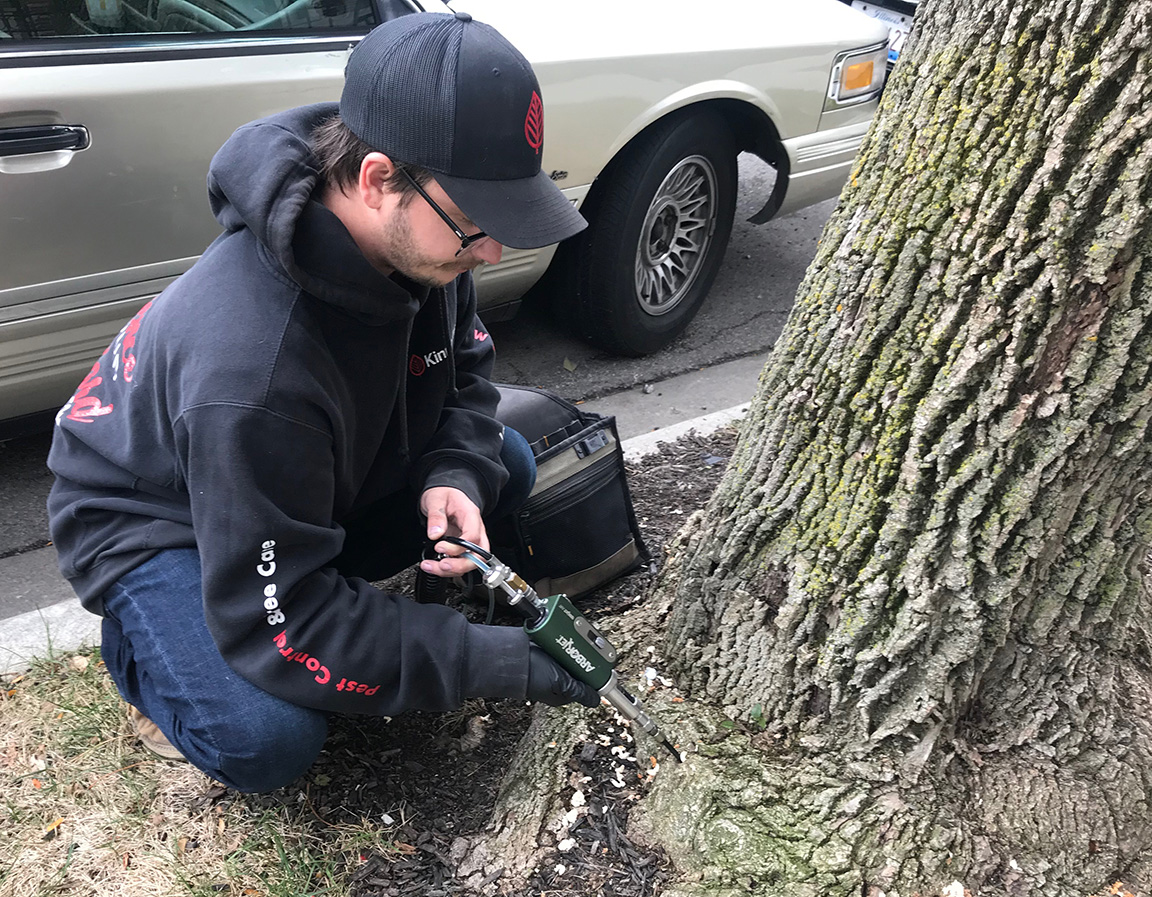
Via Save Your Ash Coalition Chicago
Chicago, IL — On the heels of the driest May in almost 30 years and worst air quality in
the world this week, the City of Chicago is poised to make history once again by
preserving Chicago’s 43,200 ash trees that help protect millions of residents from
dangerous airborne pollutants.
On June 20, 2023 Chicago’s Department of Streets and Sanitation posted a Work Service
Solicitation requesting bids from tree treatment companies to resume inoculation of the ash trees on public parkways. The solicitation is the successful outcome of a two-year-
long advocacy campaign by Save Your Ash Coalition Chicago (SYACC) to persuade city officials to restore ash tree treatment that the city terminated in 2019. Save Your Ash
Coalition Chicago is a partnership of environmental advocates and organizations
working to preserve the city’s tree canopy, and is a member of the city’s Tree Equity
Working Group.
Ash trees are a critical component of Chicago’s tree canopy – originally comprising 20%
of the trees on city parkways. Since 2006, the ash population in Chicago has been
subject to a lethal infestation of the Emerald Ash Borer (EAB), an invasive beetle that
arrived from Asia two decades ago. To date EAB has killed over 1 billion ash in the
hardwood forests of the U.S. and Canada and is currently infesting trees in 36 states. No
North American ash species have any natural resistance to the beetle and require an
injection of insecticide every three years to prevent their destruction.
“If all of the city’s public ash trees are treated, it will be the largest tree canopy
preservation initiative in the nation,” according to Rob Gorden, Director of Urban
Forestry at Arborjet, the company that produces the treatment materials used by
municipalities nationwide.
Between 2008 and 2019, the city’s Bureau of Forestry implemented a very successful
ash treatment program, which protected the city’s ash tree population. However, the program was terminated in 2019 and no ash trees have been treated since 2018. That
lag has allowed the EAB to reestablish its destructive presence in the city and many of
the remaining trees are becoming infested. Unless treated soon, these mature ash trees
will die and further destroy Chicago’s urban tree canopy.
“These older trees are silent champions of our health and security. They purify our air,
mitigate heat islands, decrease crime and improve the overall mental and physical
health of residents living near them,” said Karen Daiter, Tree Team Chair, The Climate
Reality Project: Chicago Metro Chapter.
Preserving ash trees in urban areas through a regular program of treatment is
environmentally sound and cost-effective. Recent studies have demonstrated the critical
benefits of maintaining a mature urban tree canopy in a world of accelerating climate
change. Ash trees can be treated and preserved for over 30 years for less than the cost
of removal and replacement.
SYACC began its campaign in 2021 to urge the city to re-establish its ash treatment
program. After testifying at Chicago City Council Hearings in Fall 2021, Alderpeople
Andre Vasquez (40th), Matt Martin (47th), and Rossana Rodriguez (33rd) sponsored a
resolution signed by 42 Alderpeople to reinstate the ash inoculation program. A few
months later, after more alderpeople signed a resolution requesting that the city create
an RFP from ash tree treatment contractors, SYACC and partners sent a letter requesting
an RFP to Mayor Lightfoot. In Spring 2022, the Bureau of Forestry – with SYACC’s input –
drafted an RFP. After 14 months of city departments’ review and modification, the
solicitation was posted last week.
Solicitation 9571 requests bids for a five-year program of inoculations with the city
divided into three zones. It calls for the treatment of 864,000 inches of tree diameter
which translates into 43,200 ash trees with an average diameter of 20 inches. Treated
trees require a two-year guarantee. Final bids are due by July 28, 2023.
Currently, Chicago’s Budget Office has allocated $1 Million for ash treatment, however,
additional funds will need to be secured to treat the city’s entire ash population.
“This is a significant win for all Chicagoans, especially those like me, with asthma and
other chronic respiratory conditions. Knowing there are many residents whose health
suffers because they live in neighborhoods with drastically reduced tree canopy,
motivates me to continue our efforts to ensure all ash trees are treated before it’s too
late,” said Laura Sabransky, SYACC Co-chair.